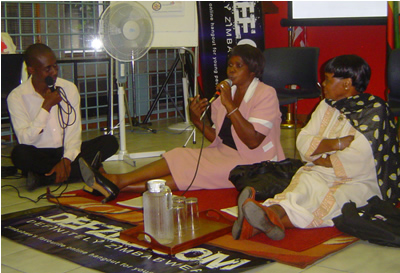Healing
Thursday, April 26th, 2012 by Elizabeth NyamudaMy newborn son has discovered his hands lately and he no longer enjoys being swaddled especially when he is awake. He is now able to lift his hands, stretch them out excitedly, and bring them together in union. The discovery of his hands as a toy results in him scratching his face leaving it with scars. Interestingly, the scars heal fast and the new skin comes out to cover as if nothing ever went wrong. I have been watching this and I found it interesting because I related it to a film by celebrated Zimbabwean director Rumbi Katedza titled, ‘The axe and the tree’.
In this film we see victims of political violence finding healing through a workshop facilitated by survivors of political violence from the Tree of Life Trust. Their healing process is based on viewing the life of tree. The healing process entails one spending time reviewing a tree’s trunk, branches, leaves and maybe fruits and relating it to their own life experiences. Thus through this process they find out that trees have been hurt too but they never give up, they continue providing us with leaves for manure, shade on a sunny day, firewood and fruit to eat even though humans are their enemies.
One of the participants had his home burnt by perpetrators of violence including an avocado tree that was in his yard. In a scene in the film where he revisited his old burnt home to show and explain what happened, he and the Tree of Life facilitator found new branches coming out of the burnt avocado tree. This showed that trees could heal themselves and so could we humans if we look at the life of a tree. I have learnt that my son’s scars heal themselves naturally without me having to put in any effort.
And this shows the possibility of victims of violence own ability to heal themselves through forgiveness.










